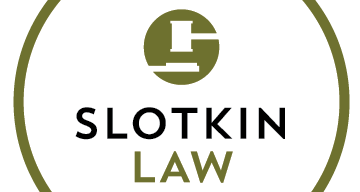Leave the Puffing to Pastries and Blowfish
We know words have consequences. Knowing where to draw the line between sales and advertising on the one hand, and actionable misrepresentations on the other, can be the difference between a growing business and a bankrupt one. If you cross that line you might be euphemistically writing checks your business cannot cash.[1] We often think of representations and warranties as legally binding only if they are part of a written contract.[2] However, contractual obligations can arise from conversations with a potential client, your company’s website, advertisements, or social media.[3] What you say can create representations and warranties the same as what you put in writing.[4] What exactly are representations and warranties and how do you protect yourself and your business?
“Representations” broadly include words or actions that assert a promise which can be relied upon.[5] For example, if you say, “We’ll make sure you have all the proper coverage”, you have represented that your company will in fact make certain the customer has all necessary coverage, and may have taken on the responsibility in the event of a non-covered loss. “Warranties” are words or actions that covey promise to indemnify a party if a specific assertion proves false.[6] For example, if you say, “We know how to identify hidden exposures”, you arguably have warranted that the customer will be covered against all insurable risks.
Implied representations and warranties are harder to spot and may situation specific. For example, a document called “Home and Flood Policy Application” may create the impression the client is buying flood insurance.[7] This could create an implied warranty that the policy covers damage from flooding. Even unintentionally misleading statements can expose your company to liability.[8]
Small adjustments in language can have significant legal implications.[9] Georgia law places higher duty of care on professionals in special positions of trust and reliance. Courts hold insurance professionals, including your staff, to this higher duty of care.[10] Be careful about holding yourself out to be an “expert”. This can create a higher duty of care and make it easier for a client to win a lawsuit.[11] For these reasons, it is essential to be thoughtful, knowledgeable and savvy about the language you use.
How to safe guard yourself and your business:
There are two principles to keep in mind that can help you avoid the pitfalls and liability of errant representations and warranties: 1) be accurate, and 2) be consistent. Representations and warranties do not pose legal liability if you make good on them. This is why it is so important to accurately and clearly state what is you offer and do not offer.
Stay away from superlative embellishments like “best coverage”, “lowest cost”, “exceptional efforts”, or “expert advice”. Stay away from absolutes like “always”, “never”, “all”, or “every”. Such language is more likely to be viewed as creating a binding representation or warranty. Be cautious making statements about the scope of coverage, level of service or expertise, duty of care, payment of claims, or any financially significant detail. All of your contracts should contain “merger clauses”, which state that verbal representations do not change or enlarge the scope of written contractual obligations. You can be sure the policies you sell contain such language, and your contracts with your clients should as well.[12]
Train your staff thoroughly. Make sure they understand the importance of choosing their words carefully. Good training and polices are exceptionally important because your business can be held responsible for your staff’s words and actions.[13] If you blog, don’t outsource content creation without reading it carefully before it is posted.
Have an attorney draft or review your contracts, polices, contracts, website, and advertising language. This may seem burdensome or unnecessary, but it will save your company a headaches and money down the road.
This article is not intended to provide “legal advice” on the issues discussed in it and does not create an attorney-client relationship. It is only for informational purposes. Please contact Slotkin Law Firm or another attorney who is knowledgeable in this area of the law about your specific situation before taking any action.
[1] O.C.G.A. § 33-6-3; O.C.G.A. § 33-6-4; O.C.G.A. § 51-6-2(b).
[2] Ga. Comp. R. & Regs. 120-2-47-.08; O.C.G.A. § 51-6-2(b); O.C.G.A. § 33-24-7.
[3] Ga. Comp. R. & Regs. 120-2-47-.10; O.C.G.A. § 33-6-3.
[4] Traina Enterp. v. Cord & Wilburn, Inc., 289 Ga. App. 833 (2008); Heard v. Sexton, 243 Ga. App. 462 (2000).
[5] Thomson Reuters Practical Law Glossary Item 8-382-3760
[6] Home Ins. Co. v. N. River Ins. Co., 192 Ga. App. 551, 553 (1989); Prudential Ins. Co. v. Perry, 121 Ga. App. 618, 622 (1970).
[7] Greene v. Lilburn Ins. Agency, 191 Ga.App. 829, 830 (1989); First Fin. Sav. & Loan Ass’n v. Title Ins. Co. of Minnesota, 557 F. Supp. 654, 661 (N.D. Ga. 1982); Morton v. W. T. Tharpe & Co., 41 Ga. App. 788 (1930).
[8] Id.; O.C.G.A. § 33-6-4; O.C.G.A. § 51-6-2; Ga. Comp. R. & Regs. 120-2-47-.08.
[9] Atlanta Women’s Club v. Washburne, 207 Ga.App. 3, 4 (1992).
[10] Jim Anderson & Co. v. ParTraining Corp., 216 Ga. App. 344, 345 (1995).
[11] Bush v. AgSouth Farm Credit, ACA, 346 Ga. App. 620, (2018); MacIntyre & Edwards, Inc. v. Rich, 267 Ga. App. 78, 80 (2004).
[12] Worsham v. Provident Companies, Inc., 249 F. Supp. 2d 1325, 1332 (N.D. Ga. 2002).
[13] Home Materials, Inc. v. Auto Owners Ins. Co., 250 Ga. 599, 300 (1983); Auto-Owners Ins. Co. v. Anderson, 252 Ga. App. 361, 363 (2001).
